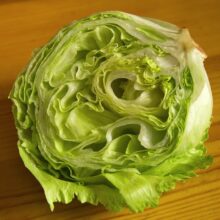The Ultimate Weight Loss Diet: A Scientifically-Backed Guide to Shedding Pounds
Introduction
Losing weight can be a daunting task, but with the right approach, it can be a journey that leads to a healthier, happier you. With so many diets and quick fixes out there, it’s easy to get lost in the sea of misinformation. But what if you had a scientifically-backed guide to shedding pounds? One that takes into account the latest research and cutting-edge nutrition science? In this article, we’ll dive into the ultimate weight loss diet, providing you with a comprehensive plan to help you achieve your weight loss goals.
The Science Behind Weight Loss
Before we dive into the diet, it’s essential to understand the science behind weight loss. When it comes to shedding pounds, there are two main factors at play: calorie intake and calorie expenditure. The old adage “calories in, calories out” holds true – if you consume more calories than you burn, you’ll gain weight, and vice versa.
Metabolism and Hormones
Metabolism is the rate at which your body burns calories, and it plays a significant role in weight loss. As we age, our metabolism slows down, making it more challenging to lose weight. Additionally, hormonal imbalances can also impact weight loss. Leptin, the “fullness hormone,” regulates appetite and metabolism, while ghrelin, the “hunger hormone,” stimulates appetite. Imbalances in these hormones can lead to overeating and weight gain.
The Ultimate Weight Loss Diet
With the science behind weight loss in mind, it’s time to dive into the ultimate weight loss diet. This diet is based on the latest research and combines the principles of portion control, macronutrient balance, and mindful eating.
Portion Control
Portion control is the key to successful weight loss. Eating large portions can lead to consuming excess calories, making it difficult to shed pounds. To practice portion control, try using a food scale or measuring cups to gauge your serving sizes. Aim for 3-4 main meals and 2-3 snacks per day.
Macronutrient Balance
Macronutrients – protein, carbohydrates, and fat – are the building blocks of your diet. Aim for a balanced ratio of:
* 15-20% protein: Include lean protein sources like chicken, fish, and tofu in your meals.
* 40-50% carbohydrates: Focus on whole, unprocessed sources like brown rice, quinoa, and vegetables.
* 30-40% fat: Choose healthy fats like avocado, nuts, and olive oil.
Mindful Eating
Mindful eating is the practice of paying attention to your hunger and fullness cues. Eat slowly, savor your food, and stop when you’re satisfied, rather than stuffed. This approach helps you develop a healthier relationship with food and reduces the likelihood of overeating.
Meal Plan and Recipes
To help you get started, we’ve included a sample meal plan and recipes below. Feel free to modify the plan to suit your dietary preferences and needs.
Breakfast Recipes
* Avocado Toast: Toast whole grain bread, mash avocado, and top with a fried egg.
* Greek Yogurt Parfait: Layer Greek yogurt, berries, and granola for a protein-packed breakfast.
Lunch Recipes
* Grilled Chicken Salad: Top mixed greens with grilled chicken, cherry tomatoes, and a vinaigrette dressing.
* Lentil Soup: Simmer lentils with vegetables and spices for a nutritious and filling meal.
Dinner Recipes
* Baked Salmon: Season salmon with lemon and herbs, and bake in the oven for a healthy and flavorful meal.
* Roasted Vegetables: Toss your favorite vegetables with olive oil and roast in the oven for a delicious and nutritious side dish.
Conclusion
The ultimate weight loss diet is not a quick fix or a fad – it’s a sustainable approach to weight loss that takes into account the latest research and cutting-edge nutrition science. By combining portion control, macronutrient balance, and mindful eating, you’ll be well on your way to shedding pounds and achieving a healthier, happier you. Remember to stay hydrated, get enough sleep, and exercise regularly to support your weight loss journey. With patience, persistence, and the right guidance, you can achieve your weight loss goals and maintain a healthy lifestyle for years to come.





